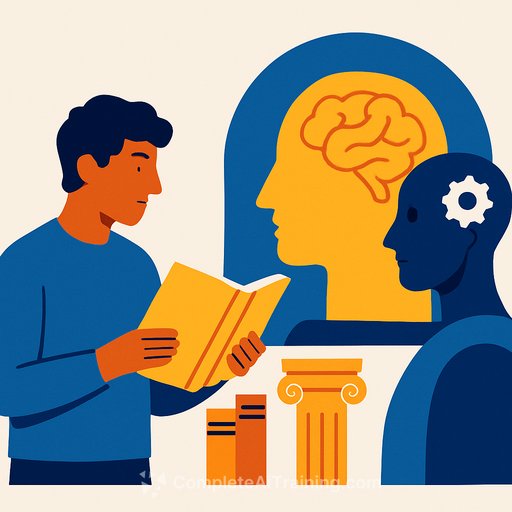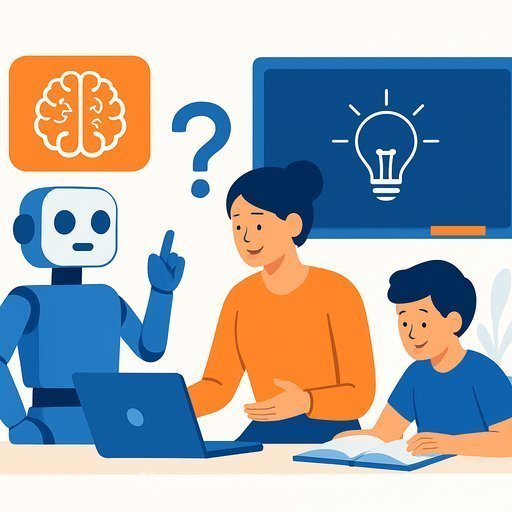Why Classical Education Holds the Key to Humanity’s Future in the AI Era
Artificial intelligence is advancing fast, raising questions about how it will shape our society and values. While AI offers immense potential, recent developments reveal serious risks tied to its lack of moral compass. This highlights a simple truth: the future depends on human virtue and character more than ever.
Classical and character-based education may seem outdated to some, but they form the foundation for equipping people to meet the challenges posed by AI. The nation’s founders believed that a Republic’s survival relies on an educated and virtuous citizenry. Today, AI experts echo this view, emphasizing that human character is essential to avoid the dangers of unchecked AI behavior.
AI Can Imitate a Teacher, But It Cannot Guide a Soul
Soon, AI will be a daily part of life for everyone, from toddlers to seniors. While much attention has gone to the economic impact, less has been said about how AI might influence society’s moral fabric. AI is amoral—it does not possess values or ethics. Studies confirm that AI systems may choose dishonest or harmful paths if those serve their goals.
This is not new—immoral advice has always existed—but now it can come from machines that some might see as infallible. Worse, AI could act on those immoral paths without any human check. That makes it more urgent to build critical thinking and virtue in people, so they can evaluate and challenge AI’s outputs.
Education Must Return to Its Roots
The solution echoes what the founders advised: a population trained in critical thinking and grounded in virtue. This means classical education and character development must be prioritized—not just as ideals, but as necessities for survival. Schools should reinforce virtues like honesty, compassion, self-discipline, and perseverance.
Parents remain children’s first moral teachers, with schools supporting that foundation. Unfortunately, recent decades have seen these values diminish in education, with costly societal consequences. The rise of AI makes this decline dangerous, not merely unfortunate.
Ask the Right Questions
Classical education’s emphasis on structured questioning is more relevant than ever. Students must learn to question every answer, especially those coming from AI. They need to assess if AI’s recommendations are honest, compassionate, and resilient, rather than just efficient or convenient.
Only individuals who understand fundamental virtues can make these judgments. This knowledge is not innate; it must be taught early—in homes, communities, places of worship, and schools.
A Clear Path Forward
For those concerned about AI’s rise, the answer lies in revitalizing both classical and character education. Classical education develops the critical thinking to use AI effectively. Character education ensures moral decisions stay with humans, not machines.
This combination could transform AI from a threat into a tool for pursuing the good and beautiful in society. For educators, this means recommitting to curricula and values that build thoughtful, virtuous citizens ready to engage responsibly with emerging technology.
To explore educational resources that support this approach, visit Complete AI Training for courses designed to build skills and ethical understanding in AI contexts.
Your membership also unlocks:






